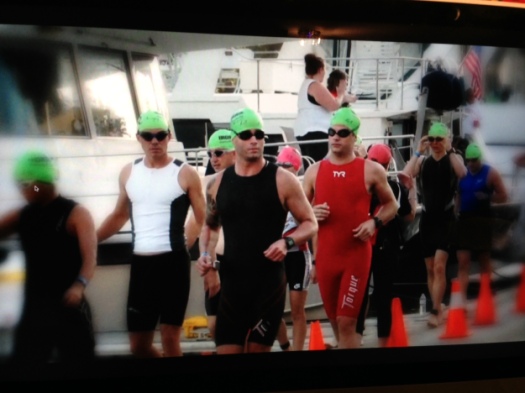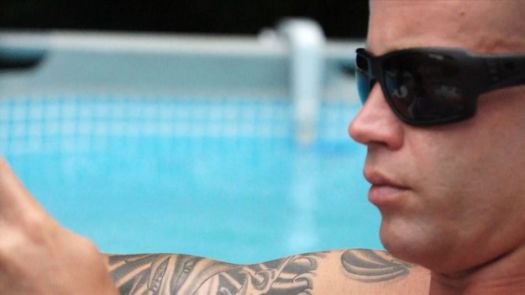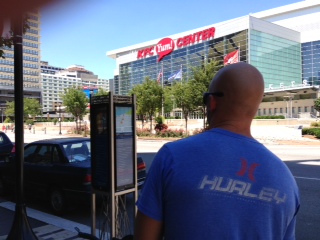For more on our community and coaching, please visit C26Triathlon.com
Many of us get into triathlon to figure out who we really are and that process is more effective and enjoyable if we love the sport. And loving the sport is a process. Today, we reflect on Kobe Bryant’s life and his passion for, not only the game, but everything he did, and tie it into our daily approach with triathlon. Kobe’s death is a painful reminder that life is fragile and triathlon is much more than just the numbers – it’s about community, connection and helping others. Today is about finding your sweet spots in training and appreciating the little things to make net gains.

Takeaways from Podcast #342 – Love The Sport
- The power of a little break – It’s impossible to keep the intensity for 365 days a year. It’s important to be around people who will remind you that it’s okay to take a break and step back from the grind. In fact, it’s essential.
- Goaded by peer pressure – On the other hand, we find benefits of giving in to occasional “good peer pressure” if your friends have your best interests in mind. And as Mike points out, it’s not a bad thing to find a little kick start once in a while.
- Kobe Bryant’s impact on us – Kobe Bryant was Coach Robbie’s favorite player, and while Mike is a Jordan fan, both respect and love the passion Kobe brought to basketball and his life. His death is one of those events that make no sense but certainly give us a wake up call.
- Painful reminders of how fragile life is – We tend to go through life in a haze, focused on numbers and results without the big picture in mind. When someone seemingly immortal as Kobe Bryant dies out of the blue, it always gives us pause and it is in this pause that we should remind ourselves to appreciate the little stuff.
- Overcomplicating what matters – There’s a lot of data out there but there’s no substitute for hitting the road or water and going. Pre-optimization is a flourishing disease. Lace em up and go.
- Combining love for the sport with wanting to be the best we can be – How often do you have that “kid feeling” when you are staring in the fact of a workout? That is the one you want. So, whatever it takes, find the part of swim, bike, and run you love the most and start there when things seem rough.
- Burnout rate – As we’ve said many times on the podcast, “Expectations are future resentments.” There is extreme power in moderating your approach and training. Listen to your body and it will tell you when it’s time to break or swing toward one discipline or the other.
- Type-A Celebration – Nobody can be “on” all the time and there is always use for good balance. Triathlon has a reputation for being full of Type-A athletes, but that doesn’t have to define the sport.
- Becoming your best, not “the” best – Imagine the intensity you would have to train for the Olympics. Years and years of work for one bright moment. In a way, we are a little that way. Days and days of training for one big race. The majority training for Olympics don’t win the gold and the same is true for triathletes. Just work to be your best and let the rest take care of itself.
- Is Triathlon a “net gain” for you? – Are you moving in the right direction? This is and should be a slow process. Not every day will be a breakthrough, but often those “bad days” are necessary to create the next advance. Embrace it all as a learning and growing experience.
- Slowing down the least – Triathlon isn’t about who goes the fastest, it’s about who slows down the least. This amounts to strength and durability. Think of that next time you are invited to do a track workout.
- Chasing PRs – This is a trap most of us fall into, but eventually you realize that continual PRs is unrealistic. Not that you can’t get faster with age (we for sure see this all the time) it’s just that you have to temper your expectations and find hybrid successes that may not always amount to a PR.
- Figuring out who you are as a person – This is why a lot of us come into triathlon – to figure out who we are. Ground yourself in that path and listen to your mind and body. Bring them together in a peaceful union to let the true you come alive.
- Breaking up the rocks – Uncovering your the truth is often painful and this is what a lot of us experience as we evolve in triathlon. We learn to sit with the pain and realize just because it’s the opposite of joy doesn’t mean it’s bad. It is what it is and often it’s a gateway to uncovering parts of ourselves that we know are being starved.
- Love what you love.
—————————————————–
Thank you for listening to the Crushing Iron Podcast. We have been recording podcasts for over 3 years on Monday and Thursday. We’ve explored many issues both in and outside of triathlon. We appreciate your support and look forward to meeting you out on the course one of these days.
For more on our community and coaching, please visit C26Triathlon.com



 Want to dial in your swimming before your next race? Check out the C26 Coach’s Eye, which has been helping people get remarkable short-term return on their swimming. Check out the video to see how easy it is to fix your swim stroke.
Want to dial in your swimming before your next race? Check out the C26 Coach’s Eye, which has been helping people get remarkable short-term return on their swimming. Check out the video to see how easy it is to fix your swim stroke.




